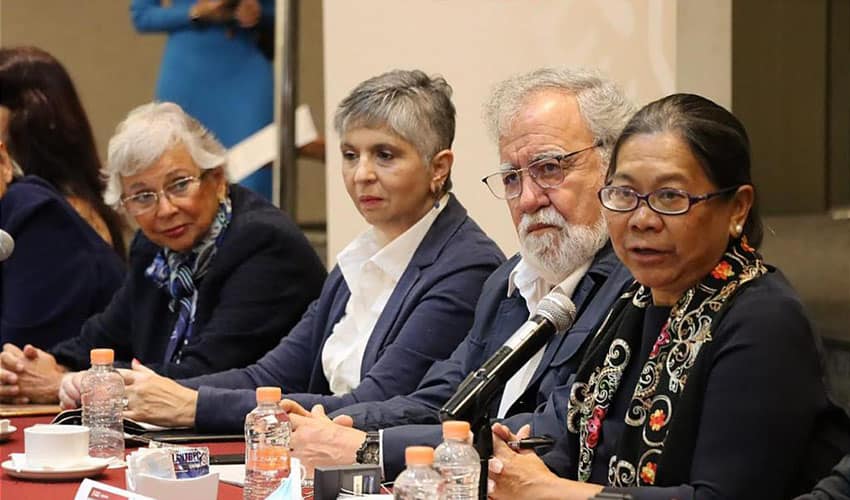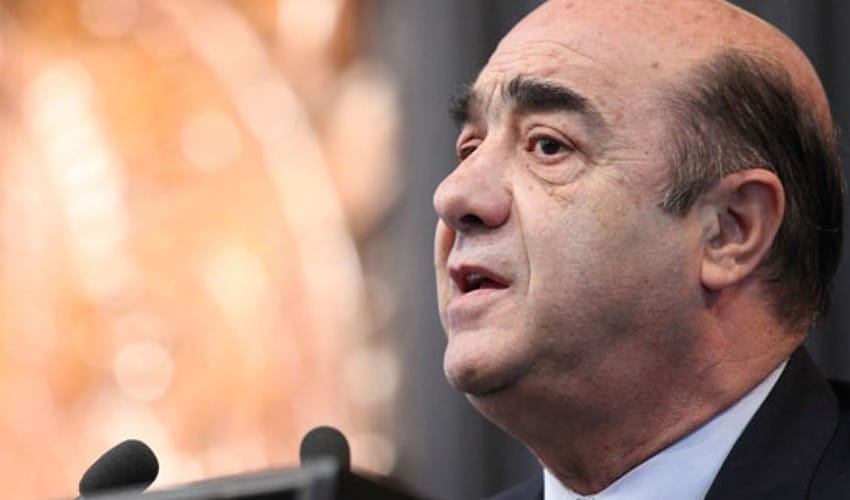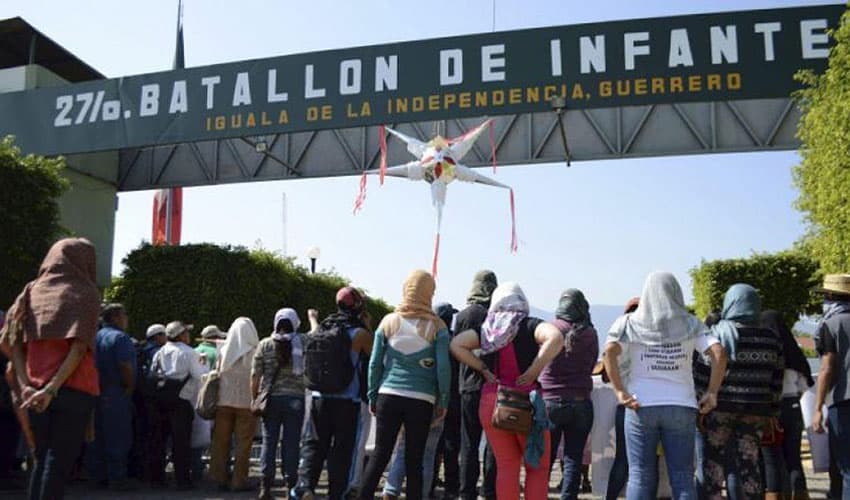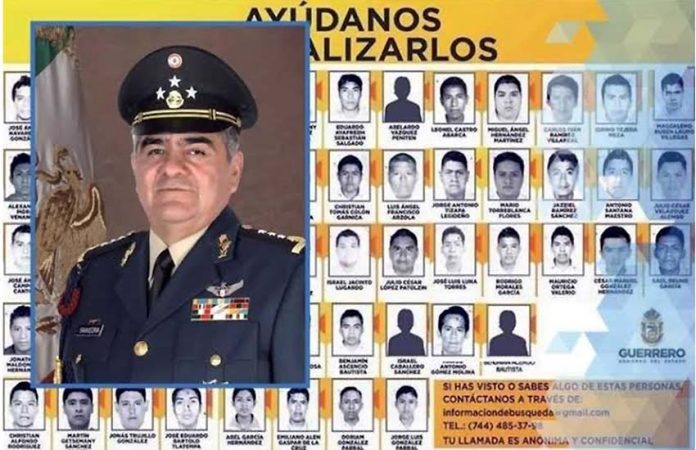A retired army general is among scores of people sought in connection with the disappearance and presumed murder of 43 students in Guerrero in 2014, the newspaper El País reported Wednesday.
Retired Gen. José Rodríguez Pérez, a then-colonel who commanded the 27th infantry batallion at the time of the Ayotzinapa Rural Teachers College students’ disappearance in Iguala on September 26, 2014, is accused of ordering the murders of six students several days after they went missing.
On August 19 – the day former attorney general Jesús Murillo Karam was arrested in connection with the students’ disappearance – the federal Attorney General’s Office (FGR) said that a federal judge had issued a total of 83 arrest warrants against 20 military commanders and soldiers belonging to two battalions in Iguala, five administrative and judicial officials in Guerrero, 33 municipal police officers from Huitzuco, Iguala and Cocula, 11 state police and 14 members of the criminal organization Guerreros Unidos.
The FGR hasn’t said whether Rodríguez – who became a general in 2015 before retiring a short time later – is among the military commanders sought, but El País reported that sources close to the investigation have confirmed that he is.

The revelation comes almost two weeks after Deputy Interior Minister Alejandro Encinas, the government’s point man for the Ayotzinapa case, made explosive accusations against the fugitive army leader. Speaking at President López Obrador’s regular news conference on August 26, Encinas said there was evidence that six of the 43 Ayotzinapa students were held in a warehouse for several days before Rodríguez ordered their murders.
It was the first time that the government directly accused the military of active participation in crimes committed against the students, although Encinas previously said that the army witnessed their abduction without intervening.
“There is … information corroborated with emergency … telephone calls where allegedly six of the 43 disappeared students, [still] alive, were held during several days in what they call the old warehouse and from there were turned over to the colonel,” Encinas said August 26 during lengthy remarks about a truth commission report on the Ayotzinapa case.
“Allegedly the six students were alive for as many as four days after the events and were killed and disappeared on orders of [someone referred to as] ‘the colonel,’ allegedly the then-colonel José Rodríguez Pérez,” said the deputy minister, who earlier last month described the Ayotzinapa case as a “state crime.”

The Ayotzinapa truth commission report says that the army received an anonymous emergency call on September 20, 2014, during which the caller claimed that students were being held in a large concrete warehouse on the outskirts of Iguala.
It also says that on September 30, 2014, an unnamed colonel (believed to be Rodríguez) remarked that “they” – presumably soldiers – “will take care of cleaning everything up and that they had already taken care of the six students who had remained alive.”
The entry about the anonymous emergency call, the Associated Press reported, is followed by several pages of redacted material, but that section of the report concluded with the following: “As can be seen, obvious collusion existed between agents of the Mexican state with the criminal group Guerreros Unidos that tolerated, allowed and participated in events of violence and disappearance of the students, as well as the government’s attempt to hide the truth about the events.”
The federal government has rejected former president Enrique Peña Nieto administration’s so-called “historic truth” in the Ayotzinapa case, but a common thread between the truth commission report and that version of events is alleged collusion between Guerreros Unidos and authorities. However, the previous government rejected claims that the army was involved.

The “historic truth,” presented by Murillo Karam in January 2015, posits that the students, traveling on a bus they commandeered to go to a protest in Mexico City, were intercepted by corrupt municipal police who handed them over to members of the Guerreros Unidos, who – mistaking them for rival gangsters – killed them, burned their bodies in a dump in the municipality of Cocula and disposed of their remains in a nearby river.
The former attorney general is alleged to have fabricated the version of events. He faces charges of forced disappearance, torture and obstruction of justice.
Many people have long suspected that the army played a role in the kidnapping and apparent murder of the students, a belief supported by leaked testimony from a suspected Guerreros Unidos leader.
The remains of just three students have been found and identified, leaving most of the students’ families with no closure – and as yet no justice – in the case that upended their lives eight years ago.
